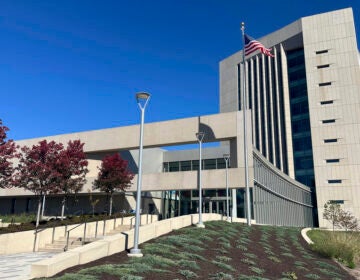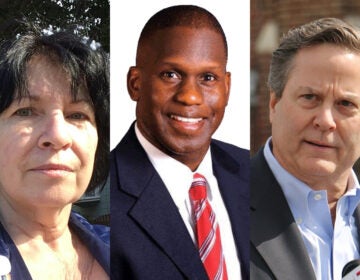Area U.S. lawmakers seeking common congressional ground for 2018
Infrastructure, foreign policy, improving Affordable Care Act among priorities for federal legislators in 2018.
Listen 4:50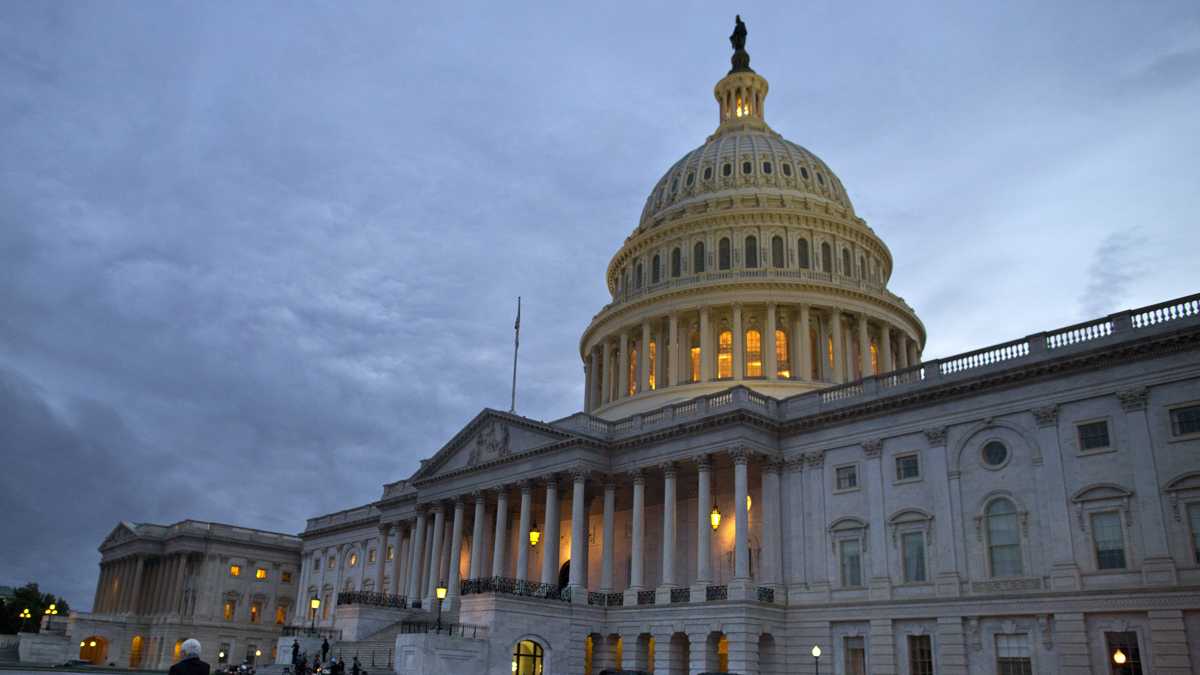
The U.S. Capitol building at dusk in Washington (Evan Vucci/AP, file)
President Donald Trump told voters he would go to Washington and shake things up. He has accomplished that — but perhaps not in the way many people expected. The president spent much of last year frustrated that he couldn’t get much of his agenda through a gridlocked Congress.
“It’s been a tumultuous year,” said Republican U.S. Rep. Tom MacArthur of South Jersey, who played a pivotal role in crafting a deal that revived the GOP effort to repeal Obamacare. And while that passed in the House, it died in the Senate.
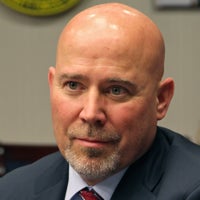
After that, MacArthur took an outspoken role in negotiating the massive tax overhaul that passed Congress last month on a strictly party-line vote.
This year, MacArthur said, he’s hoping his party will reach across the aisle more.
“I think one of the lessons out of this year is that when you do things in a partisan way only, you basically invite the other side — which has no stake in the outcome — to just blast everything you do,” he said. “And I don’t think it’s ideal … I think that we should try to engage more with the Democrats.”
Other Republicans from the Philadelphia region echo that sentiment.
U.S. Rep. Leonard Lance from central New Jersey opposed his party’s effort to repeal the Affordable Care Act out of concerns that fewer people would be covered and premium costs would not go down. Improving the ACA remains a good spot for both parties to come together early in this new year, he said.
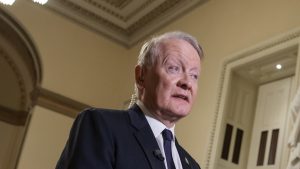
“I think we have to work in a bipartisan capacity on reform of Obamacare,” Lance said. “I think it certainly needs reform, but the best way to do that is from the center out working in a bipartisan capacity.”
Trump has frustrated lawmakers in both parties by using Twitter to aggressively go after his critics — even his fellow Republicans. But Lance said Democrats also share some of the blame for the bad blood that’s coursing through current politics. He cited Democratic leaders Nancy Pelosi and Chuck Schumer canceling a meeting with the president on a year-end spending package after Trump tweeted he didn’t think a deal was possible.
That, Lance said, was shortsighted.
“I would hope, moving forward, that we can work in a bipartisan capacity — and that includes not only the president, but it includes leadership here on Capitol Hill,” he said. “And I think it’s important for the Democratic leadership to be willing to meet with the president and not to forgo those opportunities.”
Hoping to eschew extremes
But Democrats say Republicans have moved so far to the right, it’s hard to negotiate with them. U.S. Sen. Bob Casey of Pennsylvania said that shift helps explain why Democrats were able to win a Senate seat in Alabama for the first time in 25 years.
“I think they’re letting the extremes drive the bus every day, and that’s one of the reasons they had the result in Alabama,” he said. “You saw the extremes — not just getting support — but getting nominated. But I think it’s also hurting policy.”
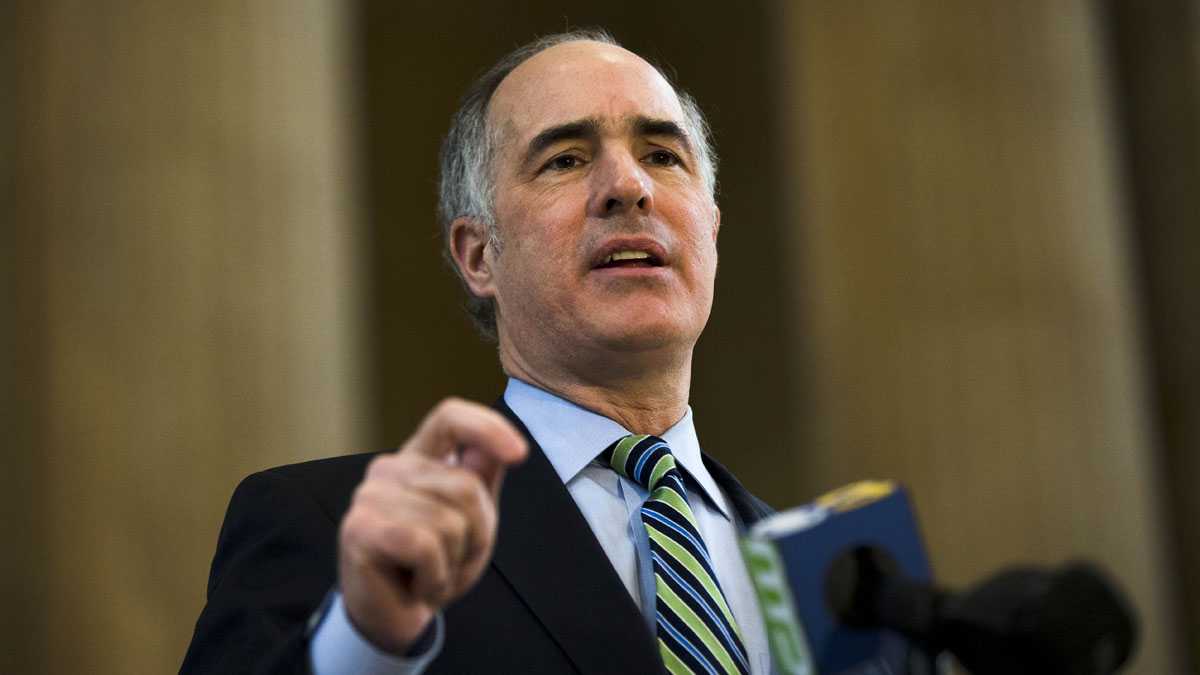
Casey and other Democrats said they’re willing to negotiate with the GOP majority and pass bills in 2018 — but only if Republican leaders give them a seat at the table.
One prime area for bipartisan partnership would be the multibillion-dollar proposals for rebuilding and developing the country’s infrastructure.
“I think certainly infrastructure, which we should have started 2017 with — I think even the president would admit that — I hope that’s still an area of focus for Republicans,” Casey said.
Then there’s foreign policy. Last year, lawmakers overwhelmingly approved new sanctions against Russia to punish the country for interfering with the 2016 election, but the White House has yet to enforce those.
U.S. Sen. Chris Coons, D-Delaware, said he needs help from Republicans in forcing Trump to step up pressure on Russia this year.
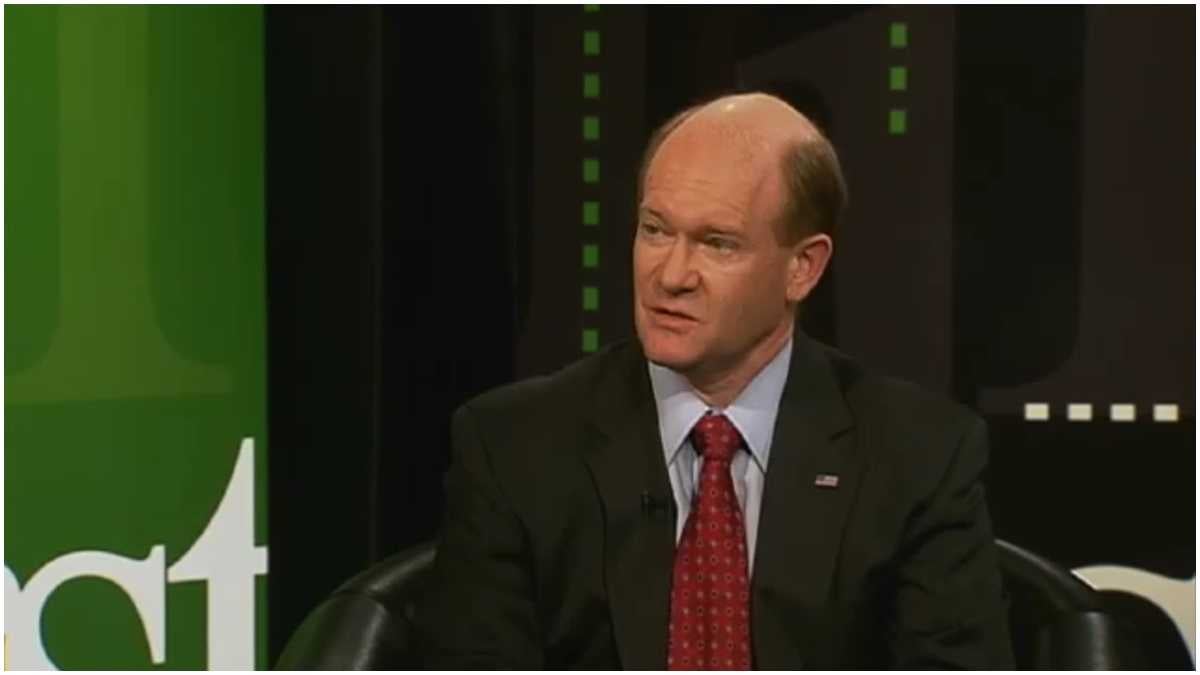
“I don’t believe they have followed up and enforced the law. I think Congress — on a very strong bipartisan basis — gave them a significant new set of tools and a clear signal that we want action taken to make Russia pay a price for meddling in our 2016 election,” Coons said.
Not all gridlock?
Despite all the focus on gridlock and intense partisanship snarling Washington, U.S. Rep. Brian Fitzpatrick, R-Bucks, said it’s not as bad as it seems
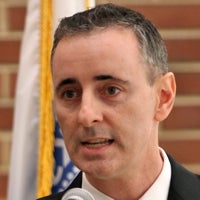
in some parts of the Capitol.
“If you look at members of our freshman class, we’re friends. We’re not just colleagues, we’re friends, and we respect each other as human beings,” said the first-term Fitzpatrick. “And we want to co-sponsor bills together, we want to see each other succeed in each other’s districts … and that’s a good thing, and I think that’s what Congress needs more of.”
With 2018 an election year, gridlock could become stronger than usual. But optimists in Washington hope the fact of elections will drive both sides to the middle so they have something to brag about on the campaign trial.
WHYY is your source for fact-based, in-depth journalism and information. As a nonprofit organization, we rely on financial support from readers like you. Please give today.


